Bruno Khélifi
Research Director
CNRS/IN2P3 - Université Paris Cité
With the development of the Open Science and the multi-messenger astrophysics, I am involved in projects on open software and open data format in order to realise multi-instrument data analyses.
All my publications can be found on my ORCID profile.
TeV astronomy
The H.E.S.S. experiment
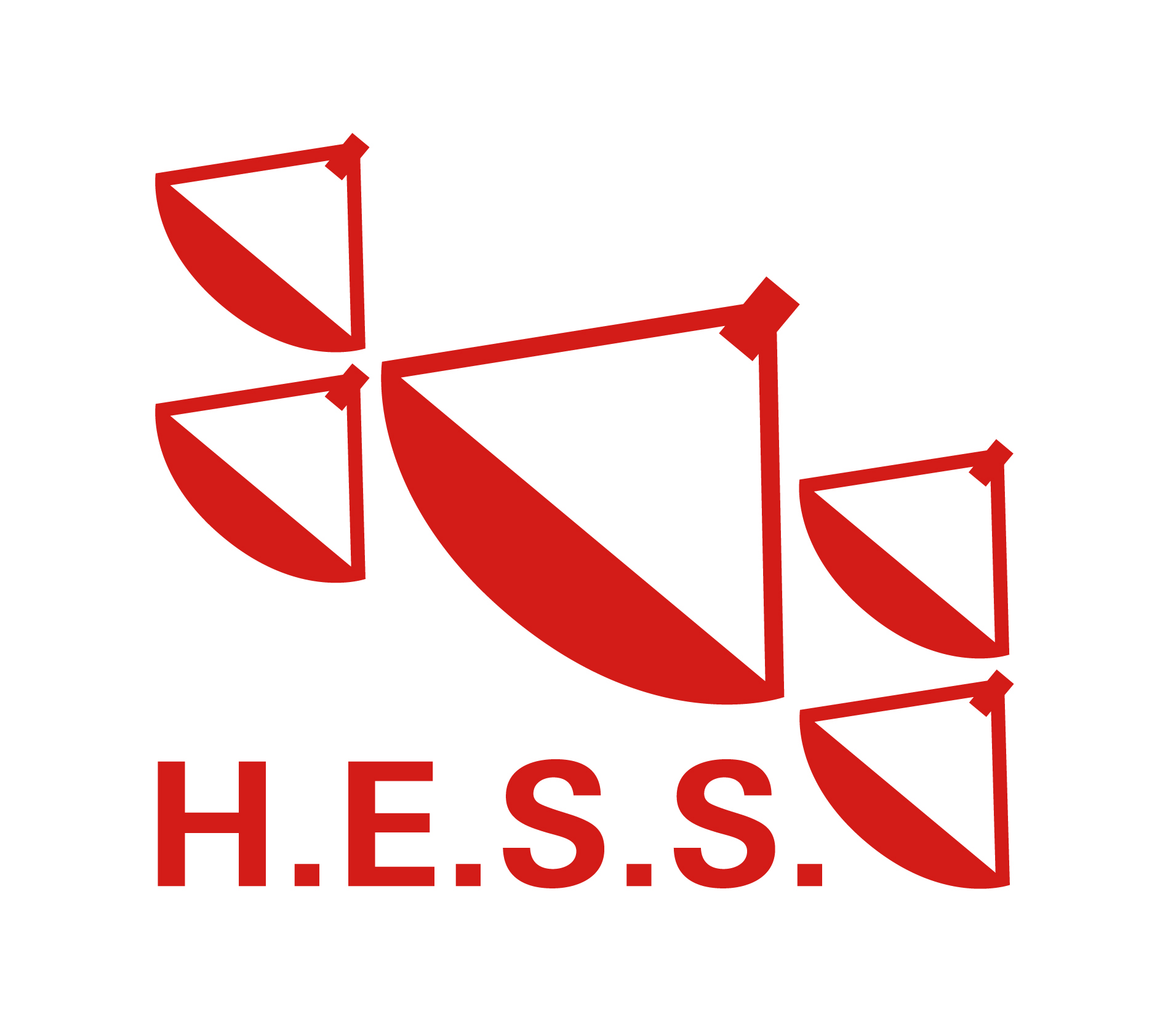
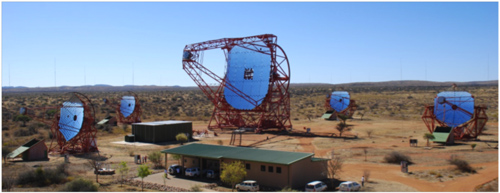
The High Energy Stereoscopic System
array is located in Namibia and is operated by an european collaboration. Operational since 2002,
this instrument permits to observe the TeV sky of the Southern hemisphere. Thanks to its
performance, the first catalog of TeV gamma-ray sources has been released in 2018
(A&A 2018 612 A1).
Member of H.E.S.S. since 2002, I contributed to the construction of some equipment
(funnels, camera mechanics) and I am responsible for one of the three official data
analysis pipelines (HAP-Fr). My research activities
are focused on the system pulsar/pulsar wind nebula and on the search for PeVatrons.
The CTA Observatory

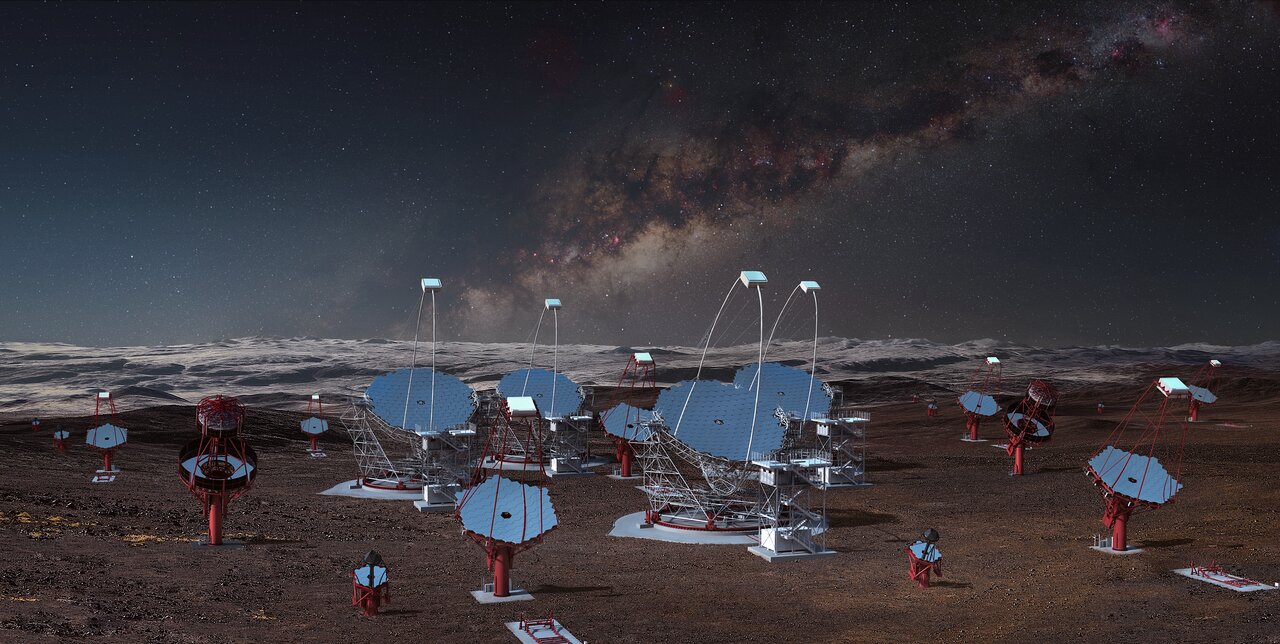
The Cherenkov Telescope Array
observatory is the next generation for gamma-ray astronomy at very high energy
(arXiv:2305.12888). It will
have one site per hemisphere. The Northern site is located in the La Palma island (Spain) and
will host 13 telescopes to observe gamma rays from 10GeV to 10TeV. The Southern site
(illustrated in the above picture) is located in the Atacama desert (Chili) nearby to
the ESO Paranal observatory. It will consist on more than 50 telescopes, permitting
to detect gamma rays on the full energy range of CTAO.
I am participating to CTAO since its birth's meeting in 2006 and I am actively contributing
to its construction: optics, mechanics and instrumentation of one type of cameras, concepts
of calibration and science user support systems, optimisation of telescope layouts, R&D for
low-level data reconstruction, data modeling, requirements, science analysis tool for the
high-level data, proposal handling website, etc.
Open Science
Data: GADF format, VODF format, IVOA, H.E.S.S. | Software: Gammapy | Community: Open Science groups
GADF
Active member of the open initiative Gamma Astro Data Format (GADF) that is about to be ended.
First common open data format for the high-level very-high-energy gamma-ray data, that has became a standard for the community (.
VODF
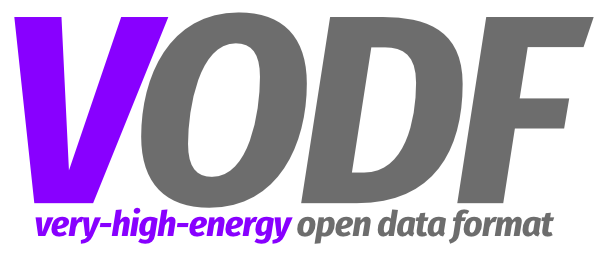
Initiator and convener of the open initiative Very-high-energy Open Data Format (VODF)
Aims:
IVOA

Chair of the newly formed HEIG of the International Virtual Open Alliance. This group aims to define data requirements for high-energy experiments, from X-rays to PeV for photon instruments, and VHE neutrino experiments.
H.E.S.S. first public data release

Active member of the group that has created the dataset and curated the data under the GADF format (ee arXiv:1810.04516 and DOI 10.5281/zenodo.1421098).
Gammapy
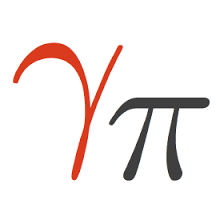
Project manager of the open research software permitting joint analyses of multi-instrument VHE data (see e.g. A&A 667 A36 (2022)), aiming to respect the FAIR4RS principles. Full description: A&A 678 A157 (2023)
Granted by the jury prize in 2022 of the first Open Research Software awards organised by the French ministry of Research (Gammapy award). Selected as core library of the CTAO Science Analysis Tool (see the CTAO press release).
Open Science Community
Member of various groups on data and software, two pillars of the Open Science:
- ambassador of SoftwareHeritage, the universal archive of open software,
- member of the RDA (Research Data Alliance),
- member of the national organisations ASOV (Action Spécifique Observatoires Virtuels) <\li>
- member of the IN2P3 advisory committee DOP2I (Données Ouvertes Pour les 2 infinis), and of the European JENA (ECTA, NuPECC, APPEC) survey committee,
- internal Open Science referent in APC and APC representative of the Open Science group of Université Paris Cité.

Positions
MPIK, Heidelberg (Germany)
Supervised by W. Hofmann
Education
Université Paris Cité (France)
The TeV astrophysics towards Open Science
To be soon published
Université de Caen - Basse Normandie (France)
Gamma sources search with a Maximum Likelihood method: Application to AGN and galactic
sources observed by the CAT telescope
Supervised by P. Espigat (PCC-Collège de France, Paris)
Link to manuscript (in French)
Skills
- Data modeling for high-level TeV data (with CTAO)
- Data formating for high-level TeV data (GADF, VODF)
- Low-level analysis of TeV Cherenkov data (calibration, reconstruction, discrimination)
- Massive production of TeV Cherenkov calibrated data (DL1 in ROOT)
- Massive production of science-ready data (DL3 in FITS)
- High-level analysis of TeV gamma-ray data
- Big data processing on clusters
- Agile Development & Scrum, Documentation
- Cross Functional Teams